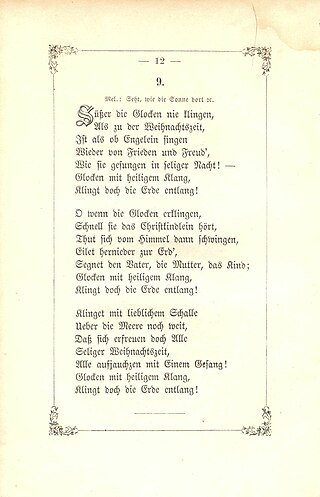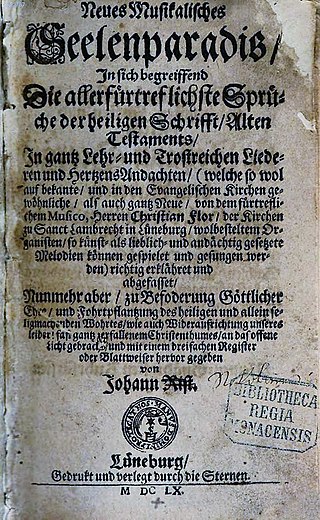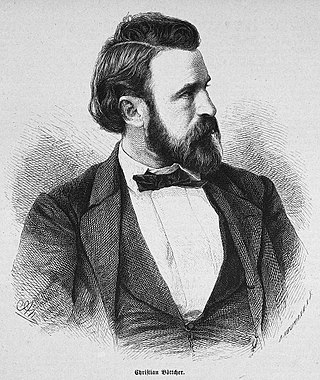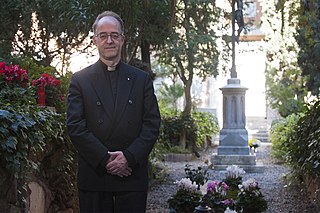Related Research Articles

Heinrich Frauenlob, sometimes known as Henry of Meissen, was a Middle High German poet, a representative of both the Sangspruchdichtung and Minnesang genres. He was one of the most celebrated poets of the late medieval period, venerated and imitated well into the 15th century.

The Bläck Fööss are a music group from Cologne, Germany, started in 1970. From 1973 to 2003 Werner Dies was producer of the music group.

This is the 1308 Polish-Teutonic War. For a list of all Polish-German Wars, see Polish-German Wars.
Klesie Kelly, or Klesie Kelly-Moog, is an American soprano and voice teacher who studied and is based in Germany, performing concerts and teaching internationally. She was professor at the Musikhochschule Köln from 1986 to 2014, and has taught international master classes.

Helmut Müller-Enbergs is a German political scientist who has written extensively on the Stasi and related aspects of the German Democratic Republic's history.
The Verlag Harri Deutsch with headquarters in Frankfurt am Main, Germany, as well as in Zürich and Thun, Switzerland, was a German publishing house founded in 1961 and closed in 2013.
Werner Vordtriede was an emigre from Nazi Germany first to Switzerland and then to the United States who was a professor of German language and literature at the University of Wisconsin from 1947 to 1960 before returning to West Germany and accepting an appointment at the University of Munich. Beyond his scholarly publications, he translated and authored a number of fictional and non-fictional works.

Memoirs of a Good-for-Nothing is a novella by Joseph von Eichendorff. Completed in 1823, it was first printed in 1826. The work is regarded as a pinnacle of musical prose. Eichendorff created an open form with epic and lyrical elements, incorporating several poems and songs in the text. It was first published in English in 1866.
Peter Lieb is a German military historian who specializes in the history of Nazi Germany and World War II. He held positions at Institute of Contemporary History, Royal Military Academy Sandhurst and Center for Military History and Social Sciences of the Bundeswehr. Widely published in the field, Lieb specializes in the Western theatre of World War II.

Jean-Claude Zehnder is a Swiss organist in church and concert, harpsichordist, and musicologist. In research and playing, he is focused on Baroque music, and has played and recorded at historic organs in Europe. He led the department for organ at the Schola Cantorum Basiliensis from 1972 to 2006. His publications include books and music editions, such as organ works by Johann Sebastian Bach.

"Süßer die Glocken nie klingen" is a popular German Christmas carol with text by Friedrich Wilhelm Kritzinger to a traditional Volkslied melody, first printed in 1860. It has remained popular and is part of many song books and Christmas recordings, evoking the sound of bells as a symbol of peace and joy.
The 1540 drought in Europe was a climatic event in Europe. In various palaeoclimatic analyses the temperature and precipitation regimes were reconstructed and compared to present-day conditions.

The album amicorum was an early form of the poetry book, the autograph book and the modern friendship book. It emerged during the Reformation period, during which it was popular to collect autographs from noted reformers. In the 1700s, the trend of the friendship book was still mainly limited to the Protestant people, as opposed to the Catholics. These books were particularly popular with university students into the early decades of the 19th century. Noteworthy are the pre-printed pages of a friendship book from 1770 onwards, published as a loose-leaf collection by the bookbinder and pressman Johannes Carl Wiederhold (1743-1826) from Göttingen.

Eberhard Rebling was a German pianist, musicologist and dance scholar as well as an anti fascist.

Harry Goldschmidt was a Swiss musicologist.

Christian Flor was a German composer and organist. Working at churches in Rendsburg and Lüneburg, he was widely known for vocal and organ compositions. He composed one of the earliest Passion oratorios, in 1667.

Christian Eduard Boettcher, or Böttcher, was a German painter whose work comprised portraiture and genre painting.

Stefan Heid is a German Catholic priest, church historian and Christian archaeologist. Since 2020 he is rector of the Pontifical Institute of Christian Archeology. Heid is also since 2011 director of the Roman Institute of the Görres-Society.
Helene Hecht was a German Jewish art collector, salonnière and patron of the arts.

"Fürwahr, er trug unsre Krankheit" is a Christian hymn of the genre Neues Geistliches Lied with text written by Eugen Eckert in 1987 to a melody from Chile. It is based on a passage from the Book of Isaiah. It is part of hymnals, including the German Catholic hymnal Gotteslob as GL 292, and songbooks.
References
- Carlo Bohländer and Karl-Heinz Holler: Reclams Jazzführer. Stuttgart, Reclam, 1977.
- Bielefelder catalog Jazz, 2001.
- ↑ Noll, Günther (2017). "Kölsche Lieder im Siebengebirge" (PDF). hf.uni-koeln.de (in German). p. 10. Retrieved March 22, 2023.
Weitere wichtige Quellen waren die frühen Schallplatten und Liedausgaben der „Bläck Fööss", die seit 1970 mit ihren originellen Liedern und hervorragenden Arrangements vom Produzenten Werner Dies (1973-2003) Aufsehen erregten und schnell Karriere machten.
- ↑ Noll, Günther (2017). "Kölsche Lieder im Siebengebirge" (PDF). ad marginem – Randbemerkungen zur Europäischen Musikethnologie, Mitteilungen des Instituts für Europäische Musikethnologie der Universität zu Köln 89/2017 (in German). hf.uni-koeln.de. p. 37. Retrieved March 22, 2023.
Weitere wichtige Quellen waren die frühen Schallplatten und Liedausgaben der „Bläck Fööss", die seit 1970 mit ihren originellen Liedern und hervorragenden Arrangements vom Produzenten Werner Dies (1973-2003) Aufsehen erregten und schnell Karriere machten.